
Reply 1998 Full Review: Why This K-Drama is a Must-Watch for Fans of Nostalgic Storytelling
Are you a fan of K-dramas that blend heartwarming nostalgia with relatable storytelling? If so, Reply 1998 is a show you can’t afford to miss. In this Reply 1998 Full Review, we dive deep into why this drama has captured the hearts of fans worldwide and why it should be on your must-watch list. Set against the backdrop of 1990s Korea, Reply 1998 beautifully mixes humor, family dynamics, and coming-of-age moments that resonate with both young viewers and those who remember the era fondly.
But what makes it stand out among other K-dramas? The secret lies in its authentic portrayal of Korean culture and its heartfelt, character-driven plot. Whether you’re seeking a nostalgic escape or an emotional journey, Reply 1998 offers more than just entertainment—it gives you a connection to a bygone era while exploring universal themes of love, friendship, and self-discovery. Keep reading to find out why this show remains a fan favorite, and how it might just be the next great series to binge-watch.
Table of Contents
ToggleOverview of Reply 1998
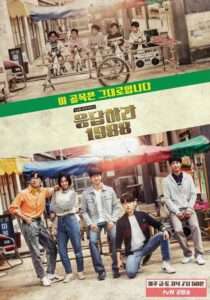 Reply 1998 is more than just a K-drama; it’s a nostalgic trip back to the late 90s in Korea, a time filled with unique cultural elements, unforgettable music, and moments that many viewers will instantly recognize. The drama focuses on a group of teenagers as they navigate their way through the ups and downs of adolescence, family life, and friendships. But it’s not just the characters that make this show stand out—it’s the perfect blend of humor, emotion, and nostalgia that resonates across generations.
Reply 1998 is more than just a K-drama; it’s a nostalgic trip back to the late 90s in Korea, a time filled with unique cultural elements, unforgettable music, and moments that many viewers will instantly recognize. The drama focuses on a group of teenagers as they navigate their way through the ups and downs of adolescence, family life, and friendships. But it’s not just the characters that make this show stand out—it’s the perfect blend of humor, emotion, and nostalgia that resonates across generations.
The story revolves around Sung Deok-sun, a bright and energetic high school student, and her group of friends. Through them, the show delves into the universal themes of love, ambition, and self-discovery. Set against the backdrop of 1998, the drama captures key aspects of Korean culture, like the rise of the internet, changing family dynamics, and the influence of 90s pop music. For those who grew up in this era, it’s like reliving a cherished part of their youth. For younger viewers, it’s an introduction to a nostalgic, yet relatable, period of time.
In this Reply 1998 Full Review, we’ll explore why the show’s attention to detail—especially in its depiction of the 90s—makes it a standout. Whether you lived through the 90s or you’re just looking for a fresh take on a heartfelt drama, Reply 1998 brings something for everyone.
Memorable Characters and Cast Performances
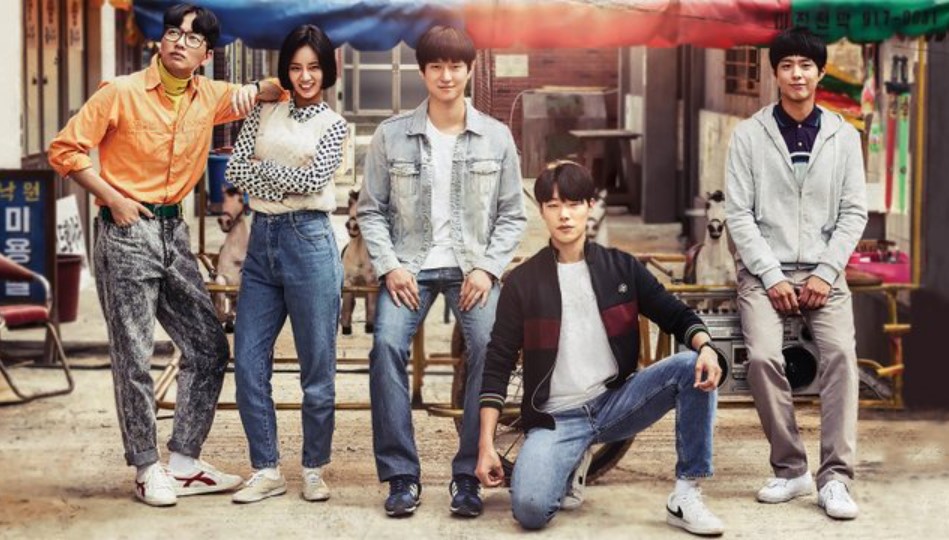 One of the standout features of Reply 1998 is its unforgettable characters, each of whom brings a unique blend of charm, relatability, and depth to the screen. The cast performances are so engaging that you’ll find yourself emotionally invested in each character’s journey, making them feel like old friends by the time the series ends.
One of the standout features of Reply 1998 is its unforgettable characters, each of whom brings a unique blend of charm, relatability, and depth to the screen. The cast performances are so engaging that you’ll find yourself emotionally invested in each character’s journey, making them feel like old friends by the time the series ends.
- Sung Deok-sun (played by Hyeri) is the heart of the series. She’s an energetic, sometimes clumsy, but lovable high schooler who dreams of a brighter future. Her character is relatable to anyone who’s ever felt unsure of where they’re going in life, making her the perfect anchor for the show. Hyeri delivers a standout performance, blending humor with vulnerability in a way that makes Deok-sun’s story feel authentic and emotionally resonant.
- Choi Taek (played by Park Bo-gum) is a genius Baduk player with a quiet, introverted personality. While he may seem distant at first, his emotional depth unfolds as the series progresses. Park Bo-gum brings an incredible sensitivity to the character, making Taek both lovable and sympathetic, even as his story arc touches on themes of self-worth and the pressure to succeed.
- Ryu Jun-yeol plays Kim Jung-hwan, the brooding yet charismatic member of the friend group. Jung-hwan’s character arc is one of the most compelling, as he navigates his complex feelings toward his friends, family, and love interests. Ryu Jun-yeol perfectly captures Jung-hwan’s internal struggle and eventual growth, making him a fan favorite for his relatable mix of charm and emotional depth.
- Supporting Cast: The show’s ensemble cast, including characters like the quirky yet wise Choi Moo-sung (Deok-sun’s father), adds a lot of heart to the drama. Each actor brings their own flair to the series, and even the secondary characters feel fully fleshed out, contributing to the show’s rich, warm atmosphere.
The chemistry between the main and supporting cast members is palpable, and the performances elevate the storytelling, making it feel natural, heartfelt, and deeply emotional. If you’re looking for a drama with memorable characters whose journeys will stick with you long after the final episode, Reply 1998 is a must-watch.
Key Themes and Storytelling
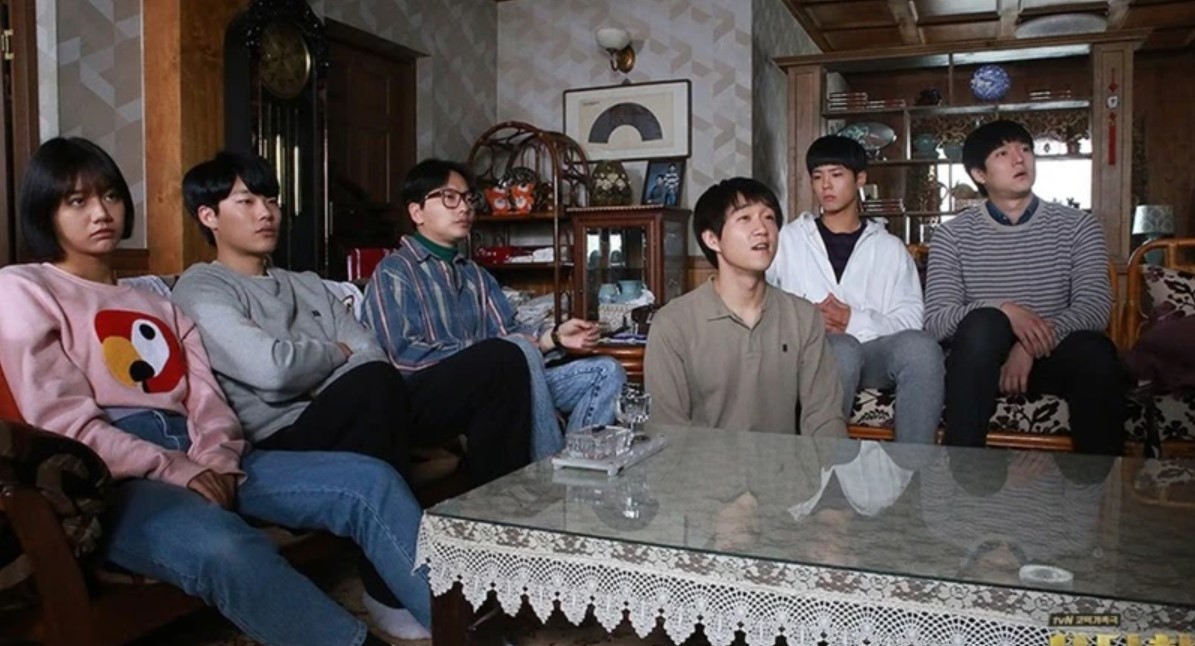 Reply 1998 isn’t just a K-drama; it’s a masterclass in nostalgic storytelling, blending universal themes with a 90s backdrop that resonates deeply with viewers. The show masterfully balances humor, drama, and heartfelt moments, touching on key themes that anyone can relate to, regardless of their background. Here’s why the storytelling works so well:
Reply 1998 isn’t just a K-drama; it’s a masterclass in nostalgic storytelling, blending universal themes with a 90s backdrop that resonates deeply with viewers. The show masterfully balances humor, drama, and heartfelt moments, touching on key themes that anyone can relate to, regardless of their background. Here’s why the storytelling works so well:
Nostalgia and the 90s Era
One of the central themes of Reply 1998 is its nostalgic look at the 1990s, a time when the internet, cell phones, and even pop culture were undergoing massive changes. The show’s careful attention to 90s details—from the music and fashion to the early days of the digital age—makes it a treat for those who grew up in that era. For younger viewers, it offers a unique peek into the past, making it both a historical and cultural lesson wrapped in an entertaining story.
Family and Friendships
At its core, Reply 1998 explores the strength of family bonds and the complexity of friendships. The drama shows how Deok-sun’s relationship with her parents and siblings shapes her, while the friendships she shares with her group of friends reflect the deep emotional support that we all seek in our lives. It’s a reminder that no matter where life takes you, these relationships are the true heart of personal growth.
Coming-of-Age Journey
The series brilliantly portrays the journey from adolescence to adulthood. Characters like Deok-sun, Taek, and Jung-hwan all struggle with identity, ambition, and the pursuit of happiness. Their experiences, including love, heartbreak, and finding their path in life, make Reply 1998 relatable to anyone who has navigated the challenges of growing up. Whether you’re still in that stage or reflecting on your own journey, the series brings these moments to life in a way that’s both heartfelt and humorous.
Love and Heartfelt Moments
The love stories in Reply 1998 aren’t just about romance; they delve into the complexity of young love, unrequited feelings, and the emotional rollercoaster that comes with relationships. The chemistry between the characters feels natural, and the way the drama tackles the ups and downs of love adds emotional depth. What sets Reply 1998 apart is how it connects these personal stories to larger life themes, making the viewer feel that much more connected to the characters.
By weaving together nostalgia, friendship, family, and love, Reply 1998 creates a well-rounded narrative that captures the essence of youth while offering meaningful insights into adulthood. If you’re looking for a show that brings out both the laughter and the tears in equal measure, this K-drama delivers on all fronts.
The Art of Nostalgic Storytelling
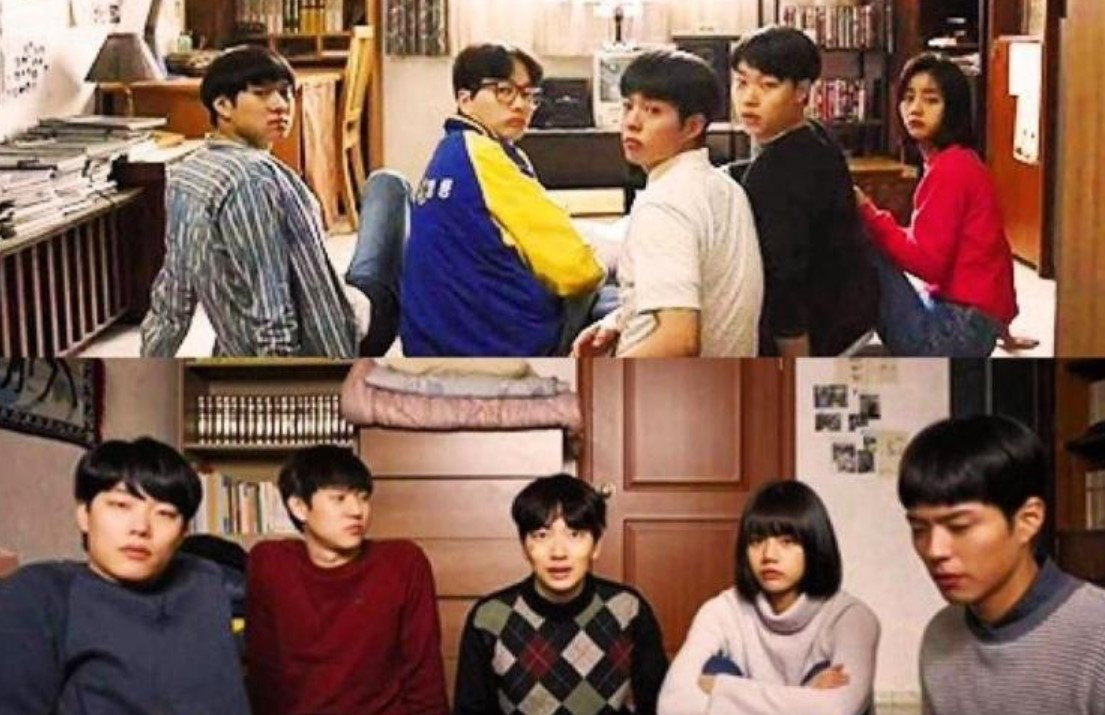 Reply 1998 excels in the art of nostalgic storytelling, making it a standout among K-dramas. The show doesn’t just use nostalgia for a quick emotional hit; it integrates it deeply into the narrative, creating a rich, immersive experience that feels both timeless and relevant.
Reply 1998 excels in the art of nostalgic storytelling, making it a standout among K-dramas. The show doesn’t just use nostalgia for a quick emotional hit; it integrates it deeply into the narrative, creating a rich, immersive experience that feels both timeless and relevant.
Creating a Connection to the Past
The 90s setting is more than just a backdrop—it’s a character in its own right. The drama immerses viewers in a time before smartphones, streaming, and social media. From the iconic music tracks to the fashion and everyday life of the characters, Reply 1998 transports you back to a simpler time, while evoking memories of the universal experiences that defined the era. For those who lived through the 90s, it’s like stepping into a time machine; for younger viewers, it offers a fascinating glimpse into a past they’ve never experienced.
Blending Personal and Collective Nostalgia
The beauty of Reply 1998 lies in how it balances personal nostalgia with broader cultural moments. While the characters are going through typical teenage struggles—love, friendship, and self-discovery—they are also navigating the larger social changes of the 90s, such as the rise of technology, the influence of popular music, and the shift in family dynamics. This combination makes the show relatable to anyone who has experienced personal growth, no matter the time period.
Emotional Resonance Through Familiarity
Nostalgia in Reply 1998 works because it’s not used as a gimmick but as an emotional tool. The show uses familiar cultural references to trigger memories and feelings, inviting viewers to reflect on their own past. The emotional highs and lows of the characters are amplified by this shared sense of history, making the moments feel even more poignant. Whether it’s the music that takes you back to your first love or the old-school technology that reminds you of a simpler time, these elements work together to build a deeper emotional connection with the audience.
Universal Themes Through a Nostalgic Lens
The power of Reply 1998 lies in its ability to tell universal stories of love, loss, and growth, but through a nostalgic lens that adds depth. The series explores the importance of relationships—both familial and romantic—and how they shape our identities. By framing these timeless themes within the context of the 90s, the show makes the viewer’s emotional journey feel grounded in both the past and the present.
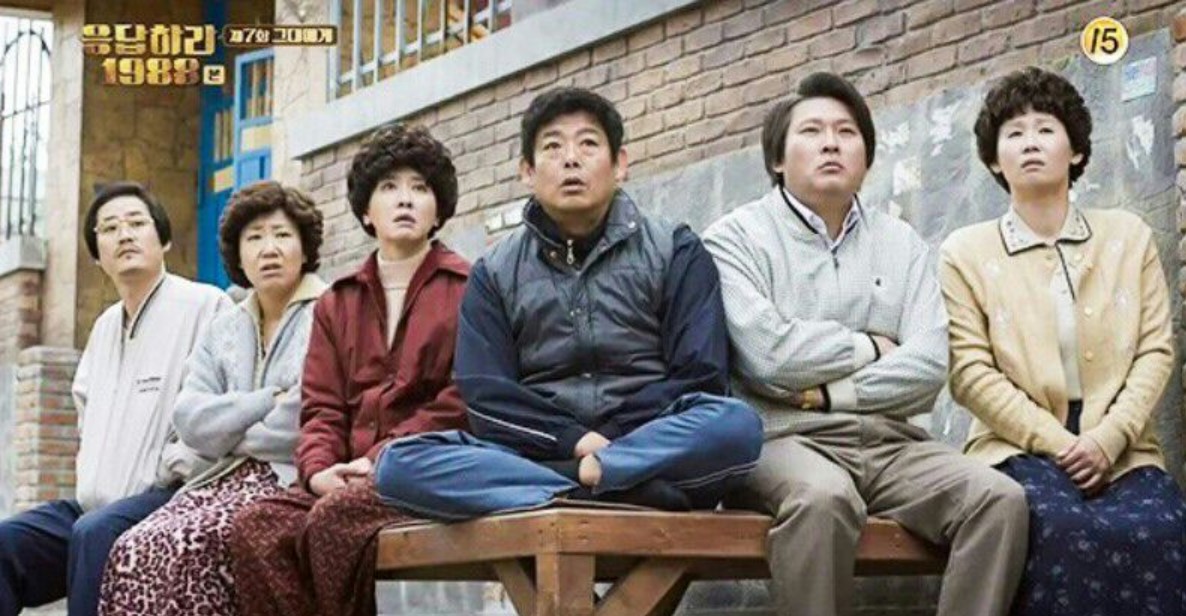 In Reply 1998, nostalgia isn’t just a tool—it’s the heart of the storytelling. The drama’s ability to evoke genuine emotional responses through its careful attention to the 90s era makes it a must-watch for anyone looking for a meaningful, heartfelt experience. Whether you’re drawn to the music, the memories, or the life lessons, this show offers something special for everyone.
In Reply 1998, nostalgia isn’t just a tool—it’s the heart of the storytelling. The drama’s ability to evoke genuine emotional responses through its careful attention to the 90s era makes it a must-watch for anyone looking for a meaningful, heartfelt experience. Whether you’re drawn to the music, the memories, or the life lessons, this show offers something special for everyone.
The Soundtrack and its Role in Storytelling
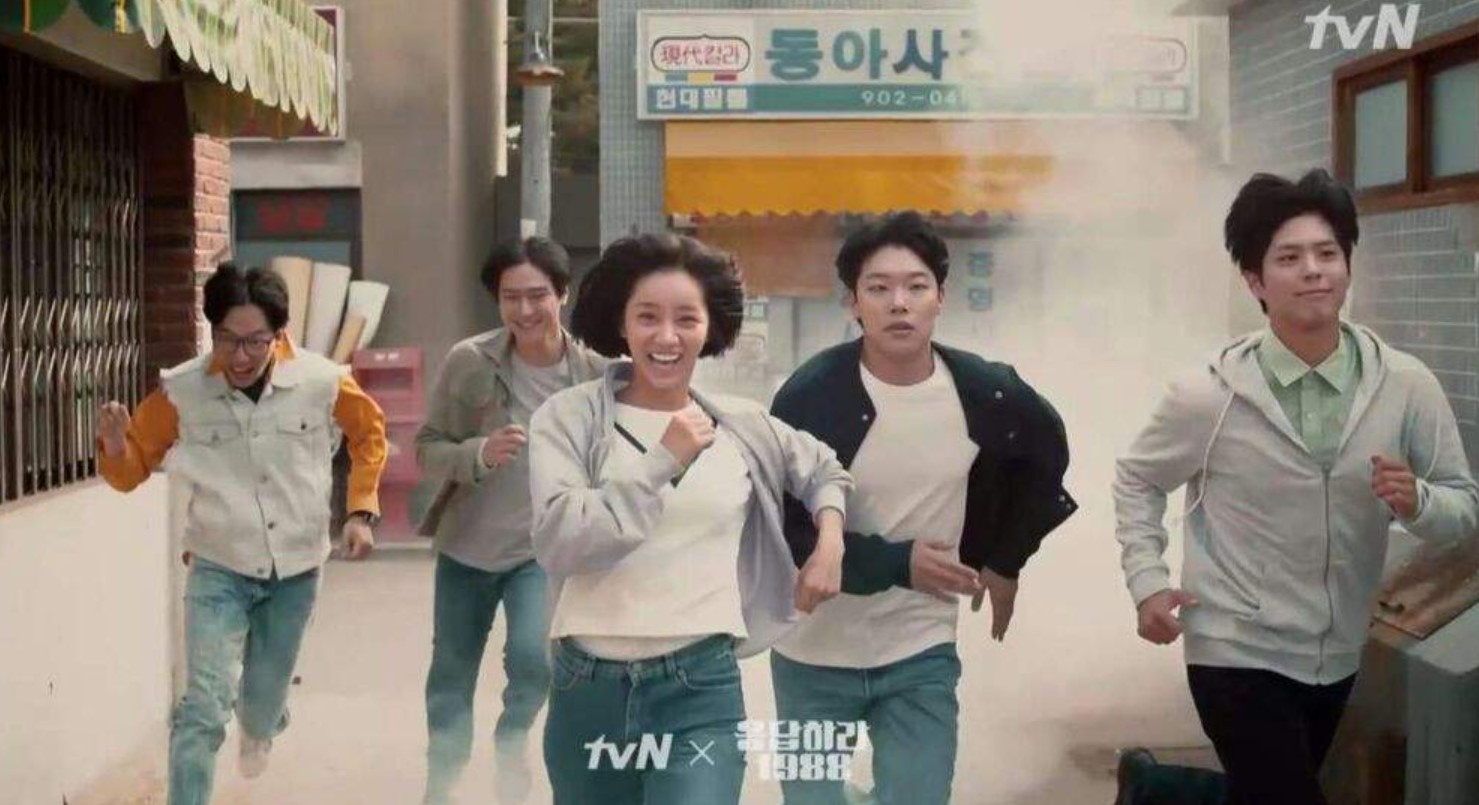 In Reply 1998, the soundtrack isn’t just a collection of songs—it’s a vital storytelling tool that enhances the emotional depth of the drama. The carefully selected tracks from the 90s play a significant role in evoking nostalgia, setting the mood, and amplifying the themes of love, friendship, and personal growth. Here’s how the soundtrack adds layers to the storytelling:
In Reply 1998, the soundtrack isn’t just a collection of songs—it’s a vital storytelling tool that enhances the emotional depth of the drama. The carefully selected tracks from the 90s play a significant role in evoking nostalgia, setting the mood, and amplifying the themes of love, friendship, and personal growth. Here’s how the soundtrack adds layers to the storytelling:
Nostalgic Connection
The 90s music featured in Reply 1998 instantly transports viewers back to that era. For those who lived through the decade, hearing familiar songs from iconic bands and solo artists triggers memories and emotions tied to youth, love, and family. The music becomes more than just a soundtrack; it’s a time machine that connects the audience to the show on a deeper level.
Emotional Amplification
The soundtrack is expertly used to amplify key emotional moments. Whether it’s a heartwarming scene between friends or a poignant moment of unrequited love, the music elevates the impact of these scenes. For example, the iconic track “A Thousand Times” by Kim Yeon Woo is used during critical moments of emotional intensity, reinforcing the sentiment of longing and nostalgia. This use of music not only sets the tone but also draws viewers into the characters’ emotional experiences.
Symbolizing Growth and Change
As the characters evolve throughout the series, the soundtrack mirrors their growth. From youthful exuberance to the bittersweet realization of adulthood, the music follows the characters’ emotional journey, helping the audience feel the changes alongside them. The evolution of the soundtrack from energetic, youthful tunes to more introspective, slower ballads reflects the maturation of the characters and the shifting focus from adolescence to adulthood.
Enhancing Key Plot Moments
Music is used strategically in Reply 1998 to highlight important plot developments. For instance, when characters experience moments of triumph or loss, the song choices mirror these shifts, creating an even more immersive experience. The songs aren’t just background noise—they are integral to how the story unfolds, helping to guide the viewer’s emotional response.
Overall, the soundtrack in Reply 1998 plays a crucial role in bringing the story to life. Its perfect blend of nostalgia, emotional depth, and thematic resonance makes the music an essential part of the drama’s appeal. For viewers, the soundtrack isn’t just a collection of songs; it’s a way to relive the past, feel the present, and connect with the characters on a much deeper level.
Why Reply 1998 is Different from Other K-Dramas
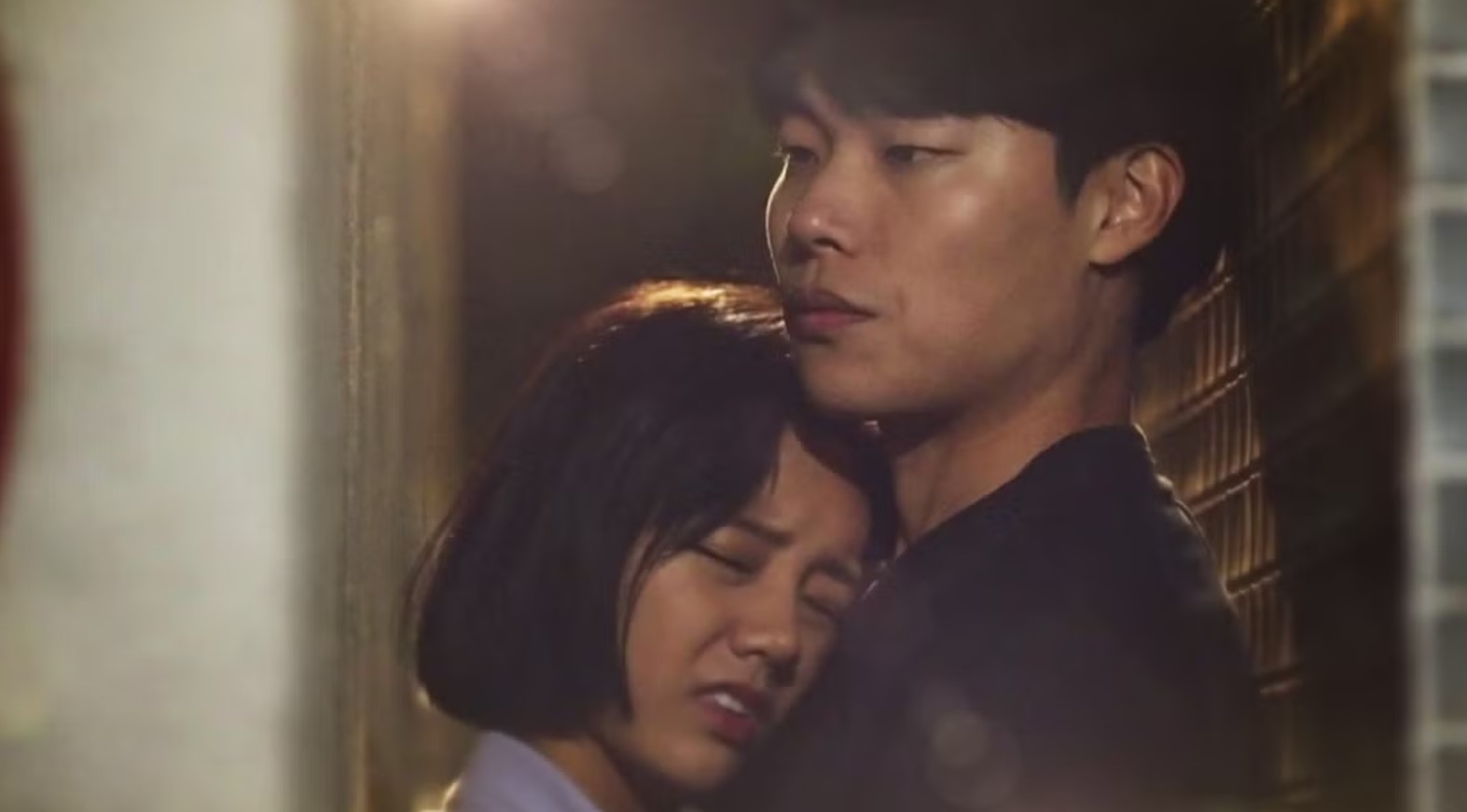 Reply 1998 stands out in the crowded world of K-dramas for several reasons. While many dramas follow familiar tropes, this show takes a unique approach by focusing on authentic, relatable storytelling that resonates with viewers on a deeper emotional level. Here’s why Reply 1998 is different:
Reply 1998 stands out in the crowded world of K-dramas for several reasons. While many dramas follow familiar tropes, this show takes a unique approach by focusing on authentic, relatable storytelling that resonates with viewers on a deeper emotional level. Here’s why Reply 1998 is different:
Focus on Realism, Not Fantasy
Unlike many K-dramas that rely heavily on exaggerated scenarios or idealized love stories, Reply 1998 grounds its narrative in realism. The drama portrays the everyday lives of ordinary people, showing their struggles, relationships, and personal growth in a way that feels genuine and relatable. It doesn’t just tell a story of romantic love but also emphasizes the importance of family bonds, friendships, and the challenges of growing up.
Nostalgia Done Right
While nostalgia is a common theme in many dramas, Reply 1998 uses it as a key storytelling tool that adds depth to the plot. The series is set in 1998, and the attention to detail—from the music and fashion to the cultural references—creates a rich sense of nostalgia that connects with both older audiences and younger viewers looking to experience the past. This blend of personal and collective nostalgia gives the show a unique charm that’s hard to find in other K-dramas.
Character-Driven Storytelling
The characters in Reply 1998 feel like real people, with their own flaws, ambitions, and emotional journeys. The show takes time to develop each character fully, allowing the audience to form strong connections with them. Unlike many K-dramas where characters are often one-dimensional, Reply 1998 dives deep into their backstories, motivations, and growth. This results in a more nuanced and emotionally satisfying viewing experience.
Realistic Depictions of Korean Family Life
Reply 1998 also shines in its portrayal of Korean family dynamics. It doesn’t shy away from showing the complexities and struggles of family life, making it feel grounded in reality. From the humor-filled moments to the touching family interactions, the show offers an honest representation of Korean culture that many other K-dramas miss.
A Fresh Take on Romance
While romance plays a significant role in Reply 1998, it’s not the typical love triangle or melodramatic plot that dominates many K-dramas. The romantic storyline unfolds in a way that feels natural, with characters experiencing the ups and downs of love in an authentic manner. There are no overly dramatic twists or manipulative plotlines—just real emotions and relatable situations.
In short, Reply 1998 is different because it offers something fresh: a realistic portrayal of life, complex characters, and a nostalgic look at the 90s. It doesn’t rely on clichés or overused formulas but instead tells a heartwarming, relatable story that resonates deeply with its audience. If you’re tired of the typical K-drama tropes and want something more grounded, Reply 1998 is the show you’ve been waiting for.
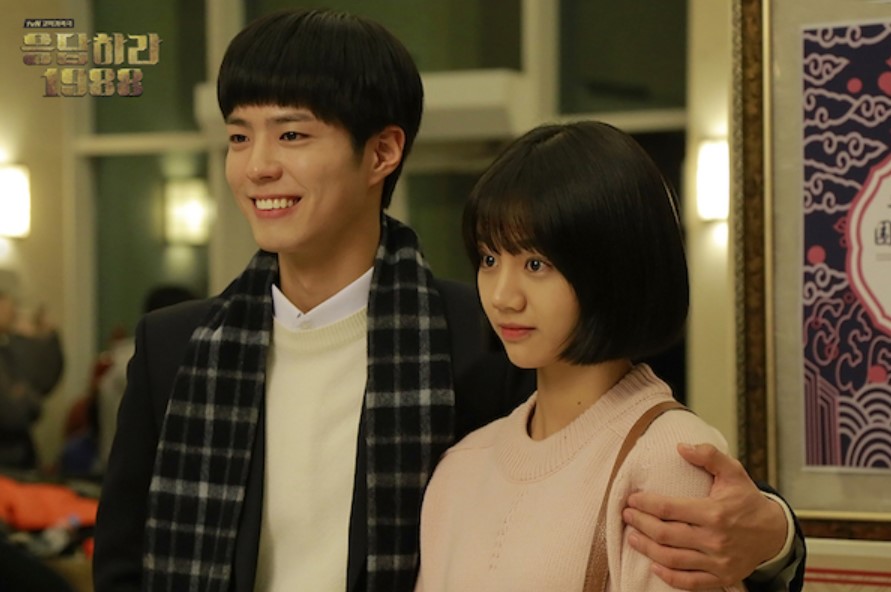 Reply 1998 is a K-drama that transcends the typical tropes of the genre, offering a heartfelt and authentic portrayal of youth, family, and friendship, set against the backdrop of 1990s Korea. With its nostalgic storytelling, memorable characters, and emotional depth, it stands out as a must-watch for anyone who loves a drama that goes beyond surface-level romance and dives into real-life struggles and triumphs.
Reply 1998 is a K-drama that transcends the typical tropes of the genre, offering a heartfelt and authentic portrayal of youth, family, and friendship, set against the backdrop of 1990s Korea. With its nostalgic storytelling, memorable characters, and emotional depth, it stands out as a must-watch for anyone who loves a drama that goes beyond surface-level romance and dives into real-life struggles and triumphs.
Whether you’re drawn to the show’s nostalgic elements, its rich character development, or the emotional resonance of its plot, Reply 1998 offers something for everyone. It’s a beautiful reminder of how simple moments and connections can shape our lives in profound ways.
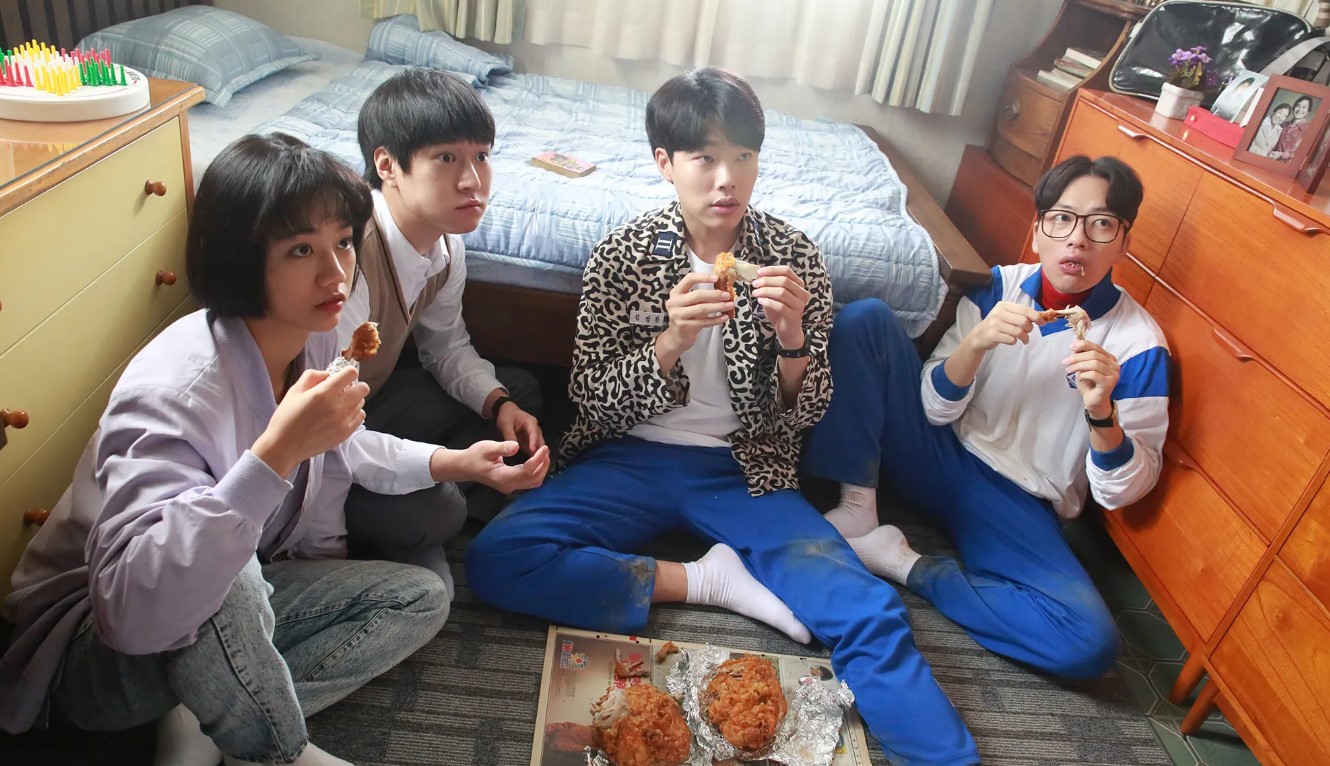 If you’re looking for a K-drama that delivers more than just entertainment and offers a deeper, more relatable experience, Reply 1998 should be at the top of your watchlist. Its blend of nostalgia, universal themes, and rich storytelling ensures it remains a timeless favorite among fans of all ages. Don’t miss out on experiencing this heartwarming journey through the 90s—your next great binge-watch awaits!
If you’re looking for a K-drama that delivers more than just entertainment and offers a deeper, more relatable experience, Reply 1998 should be at the top of your watchlist. Its blend of nostalgia, universal themes, and rich storytelling ensures it remains a timeless favorite among fans of all ages. Don’t miss out on experiencing this heartwarming journey through the 90s—your next great binge-watch awaits!
Frequently Asked Questions (FAQs)
1. What is Reply 1998 about?
Reply 1998 is a K-drama that follows a group of teenagers in 1998 as they navigate family, friendship, and love. Set in the backdrop of late-90s Korea, the series focuses on their coming-of-age journey, capturing the era’s cultural elements and the universal challenges of growing up.
2. Why is Reply 1998 considered a must-watch?
Reply 1998 offers a perfect blend of nostalgia, humor, and heartfelt storytelling. Its authentic portrayal of the 90s, relatable characters, and emotional depth make it a unique and memorable K-drama that appeals to both older and younger generations.
3. Is Reply 1998 only for people who grew up in the 90s?
No, Reply 1998 is a show for everyone. While it’s rich in 90s nostalgia, the universal themes of friendship, family, and personal growth make it relatable to viewers of all ages, whether they lived through the 90s or not.
4. What makes Reply 1998 different from other K-dramas?
Unlike many K-dramas that focus heavily on fantasy or idealized romance, Reply 1998 emphasizes realistic, character-driven storytelling. It portrays everyday life with authenticity, touching on themes like family dynamics and growing up, which makes it more grounded and relatable.
5. Is Reply 1998 a romance drama?
While romance is a key element, Reply 1998 is more than just a love story. It explores deep themes of friendship, family, and personal identity, with romance being woven naturally into the broader narrative of the characters’ growth.
6. How does Reply 1998 capture the essence of the 90s?
Reply 1998 captures the essence of the 90s through its music, fashion, technology, and cultural references. The drama uses these elements to evoke nostalgia, making the 90s setting feel both authentic and immersive for viewers.
7. What makes the characters in Reply 1998 so memorable?
The characters in Reply 1998 are deeply relatable, each with their own struggles, dreams, and growth. Their well-rounded development, emotional arcs, and realistic portrayals make them feel like real people, drawing viewers in and making them invest in their stories.
Can I watch Reply 1998 if I haven't seen the earlier seasons of the Reply series?
Yes, Reply 1998 can be enjoyed as a standalone drama. While it is part of the Reply series, each season features a different set of characters and stories. You don’t need to watch the previous seasons to enjoy this one, though doing so can provide additional context to the overarching themes of the series.
